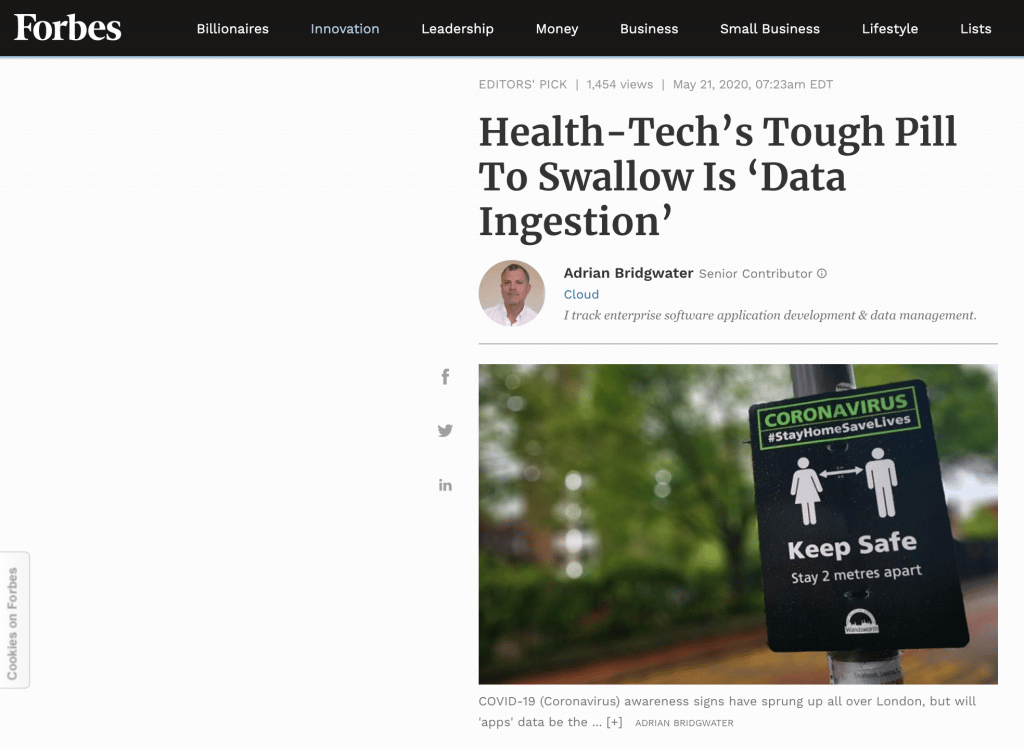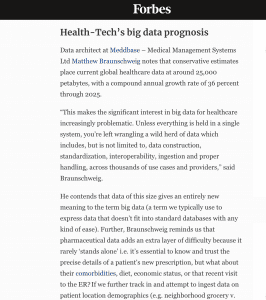Meddbase has spoken to Metro Newspaper giving an experts’ view on the issue of bringing staff back into the office ...
Meddbase has spoken to Forbes.com about the timely topic of wrangling Big Data within a healthcare context. Read the full article on Forbes.com Health-Tech’s Big Data Prognosis Data architect at Meddbase (Medical Management Systems Ltd) Matthew Braunschweig notes that conservative estimates place current global healthcare data at around 25,000 petabytes, with a compound annual growth rate of […]

Meddbase has spoken to Forbes.com about the timely topic of wrangling Big Data within a healthcare context. Read the full article on Forbes.com
Data architect at Meddbase (Medical Management Systems Ltd) Matthew Braunschweig notes that conservative estimates place current global healthcare data at around 25,000 petabytes, with a compound annual growth rate of 36 percent through 2025.
“This makes the significant interest in big data for healthcare increasingly problematic. Unless everything is held in a single system, you’re left wrangling a wild herd of data which includes, but is not limited to, data construction, standardization, interoperability, ingestion and proper handling, across thousands of use cases and providers,” said Braunschweig.
He contends that data of this size gives an entirely new meaning to the term big data (a term we typically use to express data that doesn’t fit into standard databases with any kind of ease). Further, Braunschweig reminds us that pharmaceutical data adds an extra layer of difficulty because it rarely ‘stands alone’ i.e. it’s essential to know and trust the precise details of a patient’s new prescription, but what about their comorbidities, diet, economic status, or that recent visit to the ER? If we further track in and attempt to ingest data on patient location demographics (e.g. neighborhood grocery v. fast food, or concentration of liquor stores) then data ingestion fast becomes data indigestion.
“So we can see that ingesting Health-Tech big data needs to accommodate for the fact that it is more than a single drop of quality data; there’s always a pool of data for describing a patient. Even if the big data is sourced in a perfect storm of creating, sharing and processing, the information available may not represent the whole truth. And if your database’s big data is not the whole picture, then what exactly do you have? The good news is that however jagged, giant and bitter the pill of health-tech big data may actually be, when administered properly it does have the power to change patients’ lives,” said Braunschweig.
